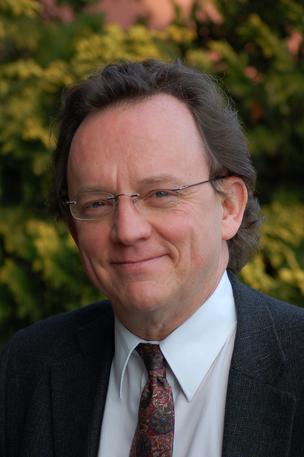Aug 19, 2013, 12:17pm PDT
David Schleich, guest columnist
Across the nation, states are scrambling to roll out the Affordable Care Act next year. Meanwhile, Oregon, long a leader in health reform, is well ahead of the curve, guided by its North Star, the “Triple Aim” (better care, better outcomes, lower cost).
At the same time, the state is facing a healthcare hurdle that threatens to disable all its carefully orchestrated plans: a critical shortage of primary care providers to care for an influx of patients into the state’s new healthcare exchanges.
The increasing scarcity of primary care providers portends to become as ominous a problem as a thunderclap crackling above a dry forest. Oregon’s health policy leaders are fully aware that the patient to physician ratio will only increase as the Affordable Care Act goes live.
Yet there continues to be reticence to fix the problem by tapping already existing resources of trained medical professionals. The article, “Doctor shortage is on the horizon. Who’ll pick up the slack?” (Aug. 5), noted that nurse practitioners may well help breech the Oregon PCP gap.
However, it’s important to note that they are but one of several possible solutions. Naturopathic physicians are another—and it’s an idea gaining currency in Oregon health policy circles.
The January 2013 report by the Oregon Healthcare Workforce Committee, “Five-Year Strategic Plan for Primary Care Provider Recruitment in Oregon,” proposes a fairly immediate remedy—removing coverage and credentialing barriers as a means to incorporate naturopathic doctors (NDs) into the new healthcare system by 2014. Less than five months from now.
The good news is that NDs are ready, willing, qualified and able to help.
Certainly NDs have made significant inroads as more Oregonians seek access to natural medicine. Today, committees like Dodson’s can see the untapped resources that NDs bring to the table. As noted in the article, “Rest easy naturopaths, you’ve got your creds” (June 26), naturopathic clinics are already being credentialed as Patient-Centered Primary Care Homes, starting with Portland’s Center for Natural Medicine—which is also a National College of Natural Medicine teaching clinic. The understanding, slowly gaining awareness, is that licensed NDs are trained as primary care physicians in accredited, four-year post-graduate medical colleges—and recognized by the state as primary care physicians.
Oregon NDs can get DEA numbers, have the authority to prescribe any pharmaceutical needed in a primary care setting, and use pharmaceuticals alongside botanical medications. They can also order, dispense and administer topical and intravenous preparations, durable medical equipment and mechanical devices, all labs and diagnostic procedures, antibiotics and vaccines, and homeopathic preparations.
An increasing body of evidence shows that patients who see NDs use fewer prescriptions, require fewer referrals to medical specialists, and experience fewer emergency room visits. The healthcare cost-savings add up quickly.
It’s clear from research that outreach nurses and community healthcare workers help improve patient care and lower costs. Similarly, while NDs can treat chronic and acute illness, they focus on disease prevention by helping patients learn about and become accountable for their lifestyle choices like nutrition and exercise.
Oregon policy leaders have a responsibility to ensure patients’ continuity of care, while improving health outcomes and reducing costs. NCNM supports nurse practitioners, chiropractors and all qualified healthcare providers who, like Oregon’s roughly 700 practicing naturopathic physicians, are prepared to step up to fill the PCP shortage.
The need is huge and growing. Oregon needs to use all the viable resources available to meet the healthcare challenges ahead.
David J. Schleich is the president of the National College of Natural Medicine, founded in Portland in 1956. It is the oldest naturopathic school in North America and an educational leader in classical Chinese medicine and CAM research.




